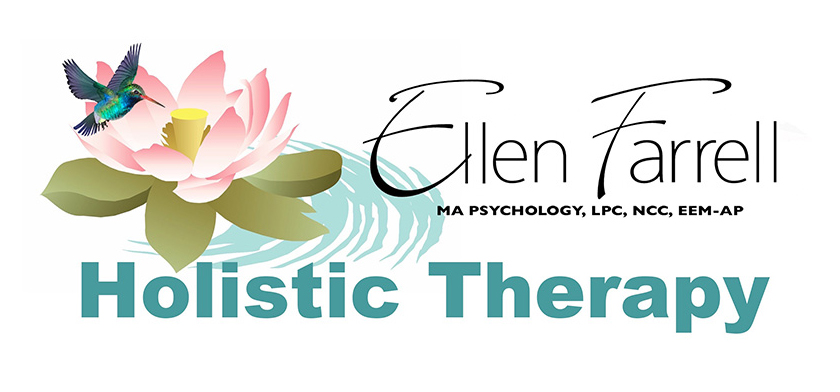What Is Complementary Medicine?
By Ellen Farrell, MA, NCC, LPC, EEM-AP
We have all heard the terms – complementary, alternative, holistic, preventive, stress management, lifestyle management, and on and on! Complementary Medicine is seen as a more appropriate term than alternative, because while at times, we still may need the diagnostic skills and more aggressive interventions of the medical model, these other approaches still complement. It doesn’t have to be an either-or situation, even though it’s often considered an adjunct to typical medical care. So it’s not always a replacement, but with its more holistic, lifestyle, and preventive approach, it is often less invasive. That translates to such things as a mind/body/spirit perspective – using a good maintenance approach with acupuncture, aromatherapy, chiropractic, homeopathy, as well as other systems of healing from around the globe! Elements of many of these approaches are being mainstreamed more and more, yet for the most part, these methodologies differ from our current AMA understanding of healing and how to be whole and healthy.
From these ‘new’ approaches such as the aforementioned homeopathy (only 200 or so years old!), to ancient healing modalities such as Ayurvedic Medicine, for which Deepak Chopra is so well known for bringing to popularity – as well as Chinese Herbs/Medicine, Native American Herbs (and East-West blends made by Master Herbologists like Michael Tierra) continue to become more accepted. Practitioners may use Vitamin/ Mineral supplementation, Aromatherapy, Bodywork (i.e., Reiki, Massage, Rolfing…), Energy Medicine, Breath-work, Acupuncture, Psychotherapy, Hypnotherapy, Meditation, Prayer, etc. to support or regain health. Often more than one of these approaches is desirable in addition to holistic exercises such as T’ai Chi, Qi Gong, and Yoga –these are practiced in order to promote flexibility, range of motion, and circulation, and to avoid a state stagnation or dis-“ease”. Overall, these exercises are a great addition to any other exercises or sports you may practice, as they support being more mindful, and having good energy flow. They are time tested as a wonderful way to maintain a state of balance and health.
Ever since the advent of managed care with its often time-limited sessions, and more corrective and reactive than preventive approach, we have experienced a revolution in patient awareness and involvement. Natural, holistic medicine has existed for centuries, however in the United States, especially since the 1950’s, science has ruled – largely to the exclusion of wisdom from ancient cultures, new healing modalities, or mind, body, and spirit integration. Yet, despite a lack of regard for the validity of such information by many in the field of medicine, there continues to be interest in these approaches. Now the wallets of the disenfranchised are speaking for them – in fact, some insurance companies are recognizing the benefits and savings to themselves as well as to the consumer.
Several medical schools and hospitals now include a broader approach in their training of healing modalities, such as Dr. Andrew Weil’s school, in Arizona. In fact as Dr.’s Dean Ornish, Larry Dossey, Joan Borysenko, Christiane Northrup, Norm Shealy, Caroline Myss, and others have documented, written about at length, and more than proven, that a holistic approach to health and healing is the most effective. Watch The Truth About Cancer series which provides a great background of how traditional medicine evolved, and effective complementary options.
Allopathic care is effective and important, but it is only one piece of the staying healthy puzzle, while many other approaches may be supportive and effective in preventing illness and maintaining health. With all the information available about complementary care, it is now easy to increase one’s awareness about how to create health. By staying informed and choosing to heal on all levels with a holistic approach, we may achieve a greater capacity to cope with multiple stressors – and to improve our quality of life, every single day.
Updated in 2016. Original version was printed in The (SCAD) Campus Chronicle, V.2, No. 22, April 26, 2002



Sorry, the comment form is closed at this time.